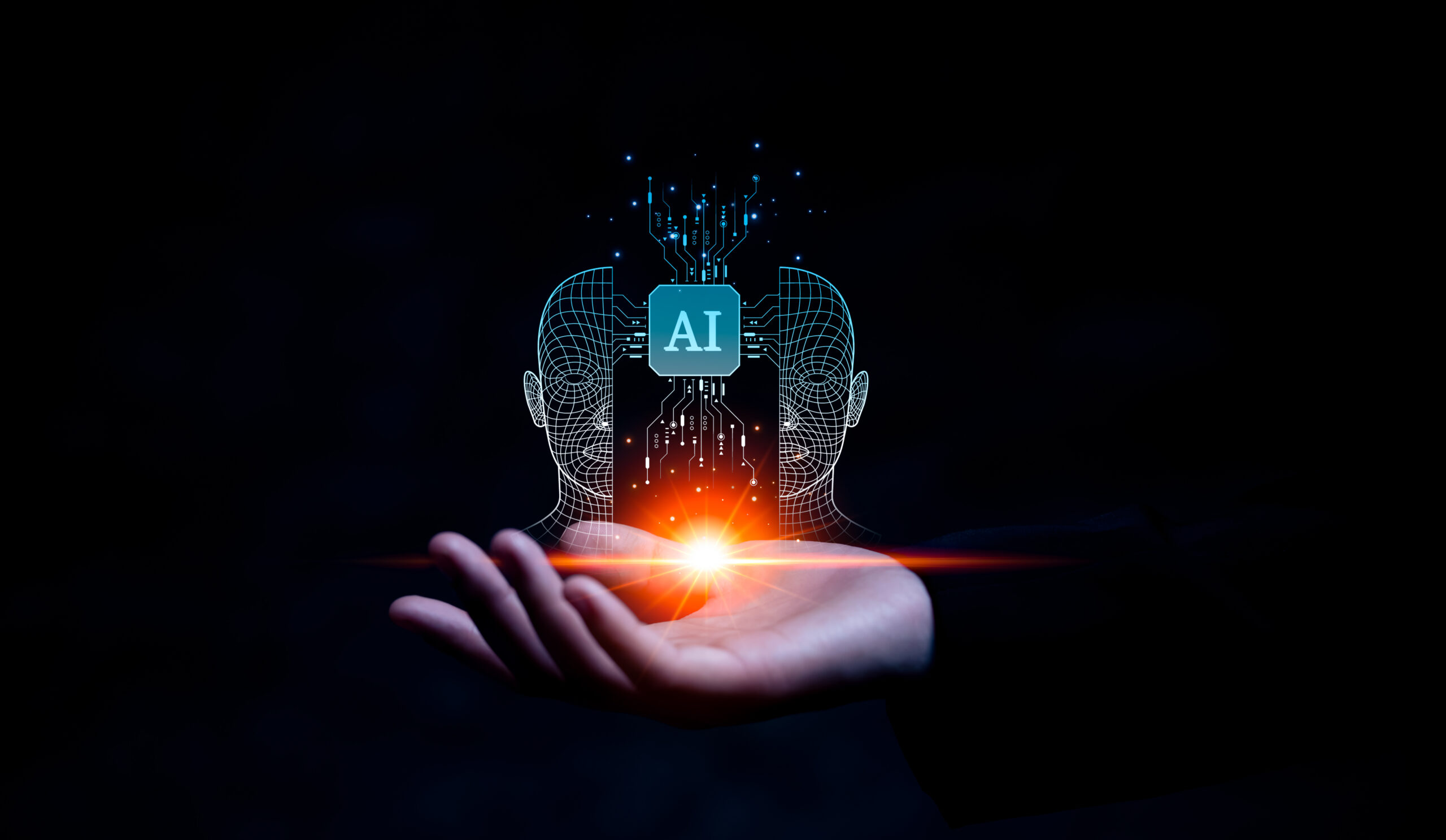Artificial intelligence is revolutionizing how governments deliver services, engage citizens, and address complex societal challenges. As public sector organizations worldwide face increasing demands with limited resources, AI emerges as a transformative technology that can enhance efficiency, accessibility, and outcomes for citizens. The potential for AI to improve quality of life spans healthcare delivery, education access, environmental protection, public safety, and government service efficiency.
The Growing Imperative for AI in Government
Government adoption of AI is accelerating rapidly. According to recent research, 84% of government decision-makers expect AI adoption to accelerate in 2025, with government projected to spend more on AI than any other industry. This momentum is driven by citizen expectations that have been shaped by private sector digital experiences - 85% of respondents expect digital government services to match or exceed those offered by private companies.govnet+1
Governments face the challenge of doing more with fewer resources, as there are nearly a million fewer state and local government employees now than in 2019. AI offers a pathway to bridge this gap by automating routine tasks, enabling data-driven decision-making, and creating more responsive public services.wwps.microsoft
Key Use Cases Transforming Citizen Services
Enhanced Citizen Engagement Through AI-Powered Assistance
Conversational AI and Chatbots
AI-powered chatbots are revolutionizing how citizens interact with government services. Singapore's GovTech agency has deployed AI chatbots across 70+ government websites, including Ask Jamie, HealthBuddy, and CPF Chatbot. These systems handle routine inquiries in multiple languages, achieving a 50% reduction in call center workload and 80% faster response times for common citizen queries.govnet
Buenos Aires has implemented Boti, an AI assistant available through WhatsApp that handles over 2 million queries per month without human intervention, alleviating the operational burden by 50%. The city government has expanded Boti to provide conversational access to over 1,300 government procedures, helping citizens navigate complex bureaucratic processes.microsoft+1
Estonia is developing Bürokratt, a national AI chatbot designed to provide citizens access to all public services through a single communication channel. The system uses natural language processing and voice-based communication to create a seamless access point for government services.e-estonia+1
Digital Service Optimization
The UK Government Digital Service has partnered with Google Cloud to implement an AI-powered search engine for GOV.UK, which serves over 700,000 pages of information. This initiative has resulted in a 14% increase in users clicking through to relevant results, an 11% decrease in search refinement, and an 8% reduction in users leaving the site from the search page.aimagazine
Smart Transportation and Infrastructure Management
AI-Driven Traffic Optimization
Cities worldwide are implementing AI to reduce traffic congestion and improve urban mobility. Boston partnered with Google's Project Green Light to optimize traffic signal timing using AI analysis of traffic patterns. The program has reduced stop-and-go traffic by over 50% at pilot intersections, with cities using similar systems experiencing a 10% average reduction in emissions.cities-today+1
Singapore's Intelligent Transport Systems (ITS) integrates data from sensors, cameras, and IoT devices to optimize public transport policies and infrastructure planning. The system provides real-time insights to help motorists make informed travel decisions and reduces overall congestion.sandtech
Pittsburgh's AI-driven traffic signals, developed by Carnegie Mellon University, have achieved a 25% reduction in travel time and 20% lower emissions. The system uses computer vision and machine learning to analyze real-time data and adjust signal patterns accordingly.shiftboston
Smart Infrastructure Monitoring
Tokyo has deployed an AI system using high-altitude cameras to detect fires and building collapses in real-time during major earthquakes. The system automatically identifies emergencies and provides information to police, fire departments, and defense forces to enable quicker response efforts.english.kyodonews
Arizona's Tucson Water Department uses AI software to proactively manage over 4,600 miles of water distribution pipes. Machine learning technology provides continuous virtual condition assessment and assigns Likelihood of Failure scores to each pipe segment, enabling more effective resource allocation.nlc
Public Safety and Emergency Response
Predictive Policing and Crime Prevention
Research from the University of Chicago has developed AI tools that can predict crimes one week in advance with roughly 90% accuracy. The system analyzes public data on property crimes and violence while also auditing enforcement biases across different neighborhoods. This approach enables more equitable resource allocation rather than simply increasing patrols in specific areas.latimes
Disaster Management and Early Warning Systems
Japan has implemented comprehensive AI systems for disaster preparedness. The Japan Agency for Marine-Earth Science and Technology has developed an AI earthquake prediction system that can detect earthquake epicenters within five seconds with accuracy to within a few kilometers. Previously, location estimates could deviate by up to 20 kilometers.jenosize
Tokyo's AI-driven crisis management system analyzes social media posts, weather data, and traffic information to provide real-time insights during disasters. The Spectee Pro service has gained over 1,100 contracts with a near 100% retention rate among local governments and companies.japan
Environmental Sustainability and Smart Cities
AI-Powered Environmental Monitoring
Cities are leveraging AI for comprehensive environmental management. Beijing's Green Horizon project, developed with IBM, uses AI-powered air quality management systems that combine sensor networks with weather data to create highly accurate air quality forecasts. This system has contributed to significant improvements in Beijing's air quality over recent years.linkedin
Singapore's National Environment Agency has implemented an Integrated Waste Management System (IWMS) that uses AI and IoT technologies. The system includes smart bins with sensors, predictive analytics for collection routes, and waste-to-energy optimization, resulting in improved efficiency and reduced environmental impact.linkedin
Smart Energy and Resource Management
AI systems are optimizing energy consumption in public buildings and managing smart grids for better electricity distribution. These systems analyze productivity patterns, weather forecasts, and occupancy data to automatically adjust lighting, HVAC systems, and other environmental settings.vtmit.vt+1
Healthcare and Social Services
AI-Enhanced Healthcare Delivery
The World Health Organization's Global Initiative on AI for Health (GI-AI4H) is advancing ethical AI implementation in healthcare globally. The initiative focuses on governance frameworks, regulatory assessment, and localization of AI tools for different contexts.who+2
Governments are using AI to predict health risks, optimize medical resource allocation, and improve emergency response systems. The UAE's Ministry of Health uses AI-powered predictive systems to model patient flows and disease outbreaks, enabling dynamic resource allocation and improving public health infrastructure resilience.newmetrics
Fraud Detection and Financial Protection
Government agencies are achieving remarkable success in fraud detection through AI. The U.S. Treasury Department credited AI with helping prevent and recover more than $4 billion in fraud during fiscal 2024 alone - six times the amount recovered in the previous year. Machine learning technology helped recover $1 billion in check fraud, nearly tripling the amount recovered the year prior.paymentsjournal+1
AI tools identify unusual transaction patterns in real-time, enabling government agencies to stop fraud before it occurs. The IRS has implemented AI-powered systems for fraud detection that eliminate error-prone manual work while increasing speed and accuracy.brookings+1
Measurable Success Stories and ROI
Quantifiable Impact Across Government Functions
Research demonstrates substantial returns on AI investment in the public sector. A 2024 study found that for every $1 invested in generative AI, organizations see an ROI of $3.70. Government agencies using AI for case processing can save up to 35% of budget costs over the next ten years.bcg+1
Specific examples of measurable impact include:
- Singapore's chatbots: 50% reduction in call center workload and 80% faster response timesgovnet
- Buenos Aires Boti: Handles 2 million monthly queries, reducing operational burden by 50%microsoft
- Tokyo's disaster AI: Provides real-time emergency detection with 98% accuracy for landslide predictionglobal
- Boston traffic AI: 50% reduction in stop-and-go traffic at optimized intersectionscities-today
- U.S. fraud detection: $4 billion in prevented and recovered fraudulent payments in one yeargovexec
Digital Transformation and Accessibility
AI is making government services more accessible and inclusive. Dubai's Smart Government initiative uses AI to automate public services from licensing to healthcare appointments, with AI-driven translation tools and accessibility functions allowing non-Arabic speakers, elderly citizens, and people with disabilities to engage seamlessly with government services.newmetrics
Hillingdon Council in the UK became the first local authority to use voice automation and AI at scale, creating a system that reduces cost per call by 5% and provides the capacity equivalent to 25-30 full-time employees while allowing citizens to contact the council 24/7.publishing.service
Challenges and Considerations
Ethical AI Implementation
Governments must address several challenges in AI adoption:
Data Privacy and Security: AI systems require extensive data processing, raising concerns about citizen privacy and data protection. Government agencies must implement robust security measures and transparent data governance frameworks.publishing.service
Algorithmic Bias: Research has shown that AI systems can perpetuate existing biases in law enforcement and service delivery. Chicago abandoned its $2 million predictive policing algorithm when it failed to produce positive results and raised concerns about fairness.law.yale+1
Digital Divide: Ensuring AI-enhanced services remain accessible to all citizens, including those with limited digital literacy or access to technology. Governments must provide multiple access channels and support for different user needs.wadhwanifoundation
Building AI Readiness
Successful AI implementation requires:
Workforce Development: Comprehensive AI training programs for government employees to understand ethical considerations and practical applications.businessofgovernment
Infrastructure Investment: Robust data infrastructure and cloud capabilities to support AI deployment at scale.businessofgovernment
Governance Frameworks: Clear guidelines for AI use, including ethical standards, transparency requirements, and accountability mechanisms.gds.blog
The Path Forward: Strategic AI Adoption
Recommendations for Government Leaders
Start with Pilot Programs: Begin with focused AI initiatives that demonstrate clear value and build organizational confidence in AI capabilities.wwps.microsoft
Prioritize Citizen-Centric Design: Ensure AI implementations improve actual citizen experiences rather than just internal efficiency.publishing.service
Invest in Data Infrastructure: Build robust data collection, storage, and processing capabilities that can support AI applications across multiple agencies.businessofgovernment
Develop AI Governance: Establish clear policies, ethical guidelines, and oversight mechanisms for responsible AI use.gds.blog
Foster Public-Private Partnerships: Collaborate with technology providers to access expertise and accelerate implementation while maintaining control over critical services.aimagazine
Conclusion
AI represents a transformative opportunity for governments to enhance citizen quality of life through more efficient, accessible, and effective public services. From Singapore's comprehensive smart city initiatives to Estonia's citizen-centric digital services, successful implementations demonstrate AI's potential to revolutionize government operations.
The evidence shows that AI can deliver substantial returns on investment while improving citizen satisfaction and service quality. As governments face increasing demands with limited resources, AI offers a pathway to do more with less while building more responsive, inclusive, and effective public services.
Success requires thoughtful implementation that prioritizes ethical considerations, citizen needs, and long-term sustainability. Governments that embrace AI strategically, with proper governance and citizen-centric design, will be best positioned to deliver the high-quality services citizens expect in the digital age.
The future of government lies in the intelligent integration of AI technologies that enhance rather than replace human judgment, creating public services that are more efficient, accessible, and responsive to citizen needs. As AI technology continues to advance, the potential for improving citizen quality of life will only grow, making AI adoption not just beneficial but essential for modern government operations.
Add to follow-up
Check sources
- https://blog.govnet.co.uk/technology/ai-in-government-case-studies
- https://wwps.microsoft.com/wp-content/uploads/2025/02/Making-the-case-for-AI-in-Public-Services-ROI-evaluation.pdf
- https://www.microsoft.com/en/customers/story/21596-government-of-the-city-of-buenos-aires-azure-open-ai-service
- https://aws.amazon.com/blogs/machine-learning/meet-boti-the-ai-assistant-transforming-how-the-citizens-of-buenos-aires-access-government-information-with-amazon-bedrock/
- https://e-estonia.com/ai-chatbot-to-replace-and-improve-governmental-e-services/
- https://interoperable-europe.ec.europa.eu/collection/public-sector-tech-watch/burokratt-single-chatbot-estonia
- https://aimagazine.com/articles/how-google-cloud-is-transforming-ai-for-public-services
- https://cities-today.com/boston-uses-ai-to-reduce-stop-go-traffic-by-50-percent/
- https://www.planetizen.com/news/2024/08/131059-boston-ai-pilot-optimizes-traffic-light-timing
- https://www.sandtech.com/insight/the-role-of-ai-in-local-government-innovation/
- https://shiftboston.org/2025/02/ai-and-smart-traffic-management/
- https://english.kyodonews.net/articles/-/49195
- https://www.nlc.org/article/2024/04/08/how-ai-can-support-cities-sustainability-goals/
- https://www.latimes.com/california/story/2022-07-04/researchers-use-ai-to-predict-crime-biased-policing
- https://www.jenosize.com/en/ideas/futurist/japan-ai-earthquake-disaster-response
- https://www.japan.go.jp/kizuna/2025/03/next-gen_disaster_tech.html
- https://www.linkedin.com/pulse/ai-driven-environmental-monitoring-creating-healthier-jess-brant-21ipc
- https://vtmit.vt.edu/academics/student-experience/blog/role-of-ai.html
- https://adam.ai/blog/government-digital-transformation
- https://www.who.int/initiatives/global-initiative-on-ai-for-health
- https://pubmed.ncbi.nlm.nih.gov/40269244/
- https://www.who.int/news/item/17-07-2025-global-leaders-discuss-most-pressing-questions-around-ai-in-health-care-and-traditional-medicine-at-un-summit
- https://www.newmetrics.net/insights/ai-for-public-good-advancing-inclusive-data-driven-and-future-ready-societies/
- https://www.paymentsjournal.com/u-s-fights-rising-check-fraud-through-use-of-ai/
- https://www.govexec.com/technology/2024/10/ai-tools-helped-treasury-recover-billions-fraud-and-improper-payments/400382/
- https://www.brookings.edu/articles/using-ai-and-machine-learning-to-reduce-government-fraud/
- https://www.bcg.com/publications/2025/benefits-of-ai-in-government
- https://www.global.ntt/insights-hub/emergency-preparedness/
- https://assets.publishing.service.gov.uk/media/678f6665f4ff8740d978864c/a-blueprint-for-modern-digital-government-web-optimised.pdf
- https://law.yale.edu/sites/default/files/area/center/mfia/document/infopack.pdf
- https://wadhwanifoundation.org/digital-inclusion-101-how-governments-can-lead-digital-inclusion-and-close-the-accessibility-gap/
- https://www.businessofgovernment.org/sites/default/files/Integrating%20AI%20in%20Government_0.pdf
- https://gds.blog.gov.uk/2025/02/10/launching-the-artificial-intelligence-playbook-for-the-uk-government/
- https://digitaldefynd.com/IQ/ai-in-smart-cities-case-studies/
- https://wwps.microsoft.com/blog/services-ai-apolitical
- https://www.sandtech.com/insight/smart-cities-in-the-us/
- https://www.deloitte.com/us/en/what-we-do/capabilities/applied-artificial-intelligence/articles/ai-dossier-government-public-services.html
- https://www.servicenow.com/blogs/2025/how-ai-will-revolutionize-public-services
- https://identityreview.com/futuristic-city-ai/
- https://www.ibm.com/think/topics/ai-in-government
- https://rooseveltinstitute.org/publications/ai-and-government-workers/
- https://data.europa.eu/en/news-events/news/smart-cities-integrating-ai-and-open-data
- https://www.brookings.edu/articles/for-ai-to-make-government-work-better-reduce-risk-and-increase-transparency/
- https://research.aimultiple.com/ai-government/
- https://www.digi.com/blog/post/smart-cities-in-the-us-examples
- https://www.ncsl.org/technology-and-communication/artificial-intelligence-in-government-the-federal-and-state-landscape
- https://hyperight.com/5-ai-success-stories-how-public-private-sectors-are-transforming-with-ai/
- https://www.weforum.org/stories/2024/07/generative-ai-smart-cities/
- https://webmobtech.com/blog/ai-revolutionizing-government-operations/
- https://www.weforum.org/stories/2025/01/rewire-governments-ai-in-the-intelligent-age-meta/
- https://www.carahsoft.com/wordpress/carahsoft-executive-order-on-advancing-ai-in-education-what-government-education-leaders-need-to-know-2025/
- https://pubs.aip.org/aip/acp/article/3327/1/020009/3357130/AI-powered-IoT-frameworks-for-real-time
- https://insider.govtech.com/california/sponsored/the-guide-to-public-sector-ai-adoption
- https://health.ec.europa.eu/ehealth-digital-health-and-care/artificial-intelligence-healthcare_en
- https://sada.com/blog/the-future-of-ai-in-public-sector-and-education-platforms/
- https://www.nature.com/articles/s41746-025-01618-x
- https://www.ed.gov/about/ed-overview/artificial-intelligence-ai-guidance
- https://www.sciencedirect.com/science/article/pii/S2773049224000278
- https://www.himss.org/news-center/white-house-releases-america-s-ai-action-plan-what-it-means-for-healthcare/
- https://www.govexec.com/sponsors/2025/06/path-effective-ai-public-sector-starts-content-management/405923/
- https://www.sciencedirect.com/science/article/pii/S2666498425000699
- https://www.weforum.org/stories/2025/08/ai-transforming-global-health/
- https://www.whitehouse.gov/presidential-actions/2025/04/advancing-artificial-intelligence-education-for-american-youth/
- https://www.taf.org/ai-government-agencies/
- https://www.cogentinfo.com/resources/predictive-policing-using-machine-learning-with-examples
- https://bennettschool.cam.ac.uk/wp-content/uploads/2024/03/The-AI-revolution-and-public-services-transformation_LDSM.pdf
- https://digitaldefynd.com/IQ/ai-use-in-predictive-policing/
- https://legal.thomsonreuters.com/blog/predictive-policing-navigating-the-challenges/
- https://www.sas.com/en_ae/news/press-releases/2025/may/government-fraud-ai-study.html
- https://www.gov.uk/government/organisations/government-digital-service
- https://www.brennancenter.org/our-work/research-reports/predictive-policing-explained
- https://www.gdit.com/perspectives/case-studies/ai-fraud-waste-and-abuse-detection-saves-usd-1b-annually-to-federal-government/
- https://www.gov.uk/government/publications/artificial-intelligence-sector-study-2024/artificial-intelligence-sector-study-2024
- https://www.nvidia.com/en-us/customer-stories/fraud-detection-applications/
- https://www.sbs.ox.ac.uk/programmes/executive-education/online-learning/ai-and-digital-transformation-government
- https://publicsectornetwork.com/insight/building-an-inclusive-digital-future
- https://www.governing.com/context/how-ai-security-inclusion-redefined-government-in-2024
- https://www.cbsnews.com/boston/news/boston-traffic-google-green-light-artificial-intelligence/
- https://www.openaccessgovernment.org/how-ai-can-make-public-sector-services-more-inclusive-and-accessible/179942/
- https://www.smartcitiesdive.com/news/archive-acc-ai-could-hold-the-key-to-help-cities-solve-traffic-issues/757143/
- https://rootcode.io/news/2nd-government-partnership-with-Estonia
- https://www.govtech.com/artificial-intelligence/artificial-intelligence-can-help-government-be-more-accessible
- https://datasmart.hks.harvard.edu/news/2025/07/vision-zero-nyc-dot-improves-transportation-safety-all
- https://fedscoop.com/video/ambassador-kristjan-prikk-on-how-estonia-is-embracing-ai-for-proactive-citizen-services/
- https://www.weforum.org/stories/2025/06/digital-inclusion-ai/
- https://www.reddit.com/r/cars/comments/1eo0jn8/boston_implements_first_traffic_flow_changes/
- https://primathon.in/blog/the-role-of-ai-conversational-bots-in-government-services/
- https://aiforimpacttoolkit.gsma.com/case-study-portfolio/responding-quickly-and-effectively-to-earthquakes-and-other-natural-disasters-in-japan
- https://blueskycreations.com.au/case-study-successful-implementations-of-ai-in-waste-sorting/
- https://www.linkedin.com/pulse/roi-digital-transformation-public-sector-unlocking-future-nhn1c
- https://www.aetech.co.kr/en/blog/%EC%97%90%EC%9D%B4%ED%8A%B8%ED%85%8C%ED%81%AC-99-%EC%A0%95%ED%99%95%EB%8F%84-ai-%ED%8F%90%EA%B8%B0%EB%AC%BC-%EC%84%A0%EB%B3%84-%EB%A1%9C%EB%B4%87-%EA%B0%9C%EB%B0%9C-%EA%B5%AD%EB%82%B4-%EC%83%81%EC%9A%A9%ED%99%94-%EC%84%B1%EA%B3%B5
- https://www.youtube.com/watch?v=3SMW4fNz5m0
- https://stellarix.com/insights/articles/waste-management-4-0-ai-zero-waste-future/
- https://www.integrate.io/blog/data-transformation-challenge-statistics/
- https://aclima.eus/en/noticia/how-seoul-used-the-iot-to-improve-waste-management-and-collection/
- https://www.myhubintranet.com/digital-transformation-statistics/
- https://www.unesco.org/reports/science/2021/sites/default/files/medias/fichiers/2022/04/Japan_Box-24-3.pdf
- https://www.gihub.org/infrastructure-technology-use-cases/case-studies/smart-ai-based-waste-management-in-stations/
- https://www.preventionweb.net/news/tokyo-uses-ai-warn-residents-prepare-worst-simulation-mount-fuji-erupting
- https://www.sciencedirect.com/science/article/pii/S2589471425000270






